You would think that since rainwater is not a man-made resource, we could use it as we please. Unfortunately, this is not the case, and some states in America restrict rainwater harvesting. There are several environmental and economic benefits to harvesting rainwater. I bet you wondered at least once if it is legal to harvest rainwater in your state.
Research suggests that it can cover an estimated 50% of a household’s water usage. Rainwater can be used for systems such as watering plants, outside taps, and toilet flushing.
Most homesteaders store their rainwater in rain barrels. It is also useful for many non-drinking purposes such as gardening, washing clothes, bathing pets, and showering.
Rainwater is even more beneficial for gardens, plants, and landscapes because it is free from the chlorination process, all of which significantly reduce water usage. Additionally, rainwater helps to reduce erosion and flooding, which is beneficial for the environment.
I think most homesteaders thought that harvesting is legal when it comes to rainwater. Despite the many advantages of harvesting rainwater, it is still illegal to collect rainwater in some states. Keep reading to find out in which states rainwater harvesting is encouraged and where restrictions may apply.
How is Rainwater Harvested?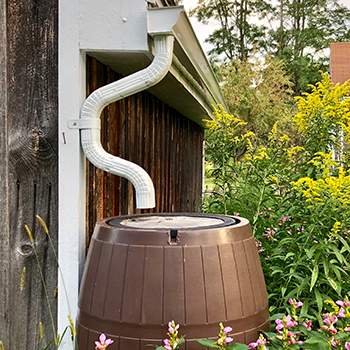
Rainwater harvesting involves collecting the runoff that flows from structures such as rooftops or drains. The water is collected in a storage vessel such as a rain barrel or a cistern and used to supply water for households or businesses.
Rainwater harvesting is the norm in countries such as Germany and Australia. However, over recent years, the practice has become more popular in the United States as a result of the green building movement and an increased focus on water quality.
What is the Purpose of Water Harvesting Regulations?
Regulations for promoting rainwater harvesting have been around for centuries and date back to the 1800s. Harvesting rainwater is a double-edged sword because it is both good and bad for the environment.
For example, farmers rely heavily on rainwater from rivers, as they need it to water their crops and care for their cattle. Furthermore, there are some areas that frequently experience difficulties with their water supply because of droughts.
Therefore, when rainwater is diverted through harvesting, it can become problematic. In order to prevent any issues, some state governments have put strict regulations in place, including requirements for water quality and limitations on how much water you can store.
So Is It Legal To Harvest Rainwater In Your State?
As with all regulations, they will differ according to the state. Additionally, you may also find that some cities have their own state rainwater regulations; therefore, it is important to check before taking any action.
Alabama
There are no regulations in place in the state of Alabama as rainwater harvesting is encouraged. In fact, they encourage the collection of rainwater, and many organizations have published documents to assist residents with technical guidelines and instructions.
Arizona
There do not appear to be any regulations regarding the residential collection of rainwater. However, there are regulations in place for commercial collecting.
California
The state of California experiences severe droughts during the summer months. As a result, there are a lot of strict regulations surrounding rainwater collection.
Is It Legal To Harvest Rainwater In Colorado?
In 2016, Colorado passed new laws for harvesting rainwater. It is allowed for personal use; residents can store a maximum of 2 barrels totaling 110 gallons. Collected rainwater can be used for non-drinking purposes such as flushing toilets and watering plants.
Connecticut
Connecticut is another state that encourages promoting rainwater harvesting for environmental protection and energy conservation.
Florida
The state of Florida is greatly in favor of water harvesting. They provide residents with rebate programs and tax incentives for rainwater collection. There are no regulations in place.
Georgia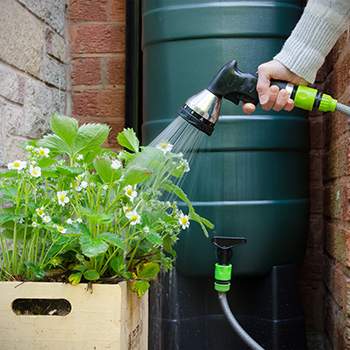
It is not illegal to collect rainwater in Georgia; however, there are a lot of regulations surrounding the practice. As long as rainwater is for outdoor use only, it’s legal.
Hawaii
There are no restrictions on rainwater harvesting in the state of Hawaii, it is very much encouraged, and all aspects of the practice are overseen by the Department of Health and Safety.
Is It Illegal To Collect Rainwater In Illinois?
There are a lot of rainwater harvesting regulations in Illinois. In the majority of circumstances, you won’t require a permit. However, it is best that you contact your local authorities to get more detailed information about their regulations.
North Carolina
North Carolina is one of the few states that promote promoting rainwater harvesting, and their regulations are a reflection of this. The state has made several grants available to ensure that residents make full use of rainwater collection systems.
Ohio
Similar to North Carolina, the regulations in Ohio promote water harvesting, and grants have been established to help residents set up their own systems, such as rain barrels.
Is It Legal To Harvest Rainwater In Oklahoma?
Oklahoma has a vested interest in water harvesting. The state set up a committee to investigate additional strategies for effective practices. There are some rainwater collection practices that might be eligible for a grant.
Oregon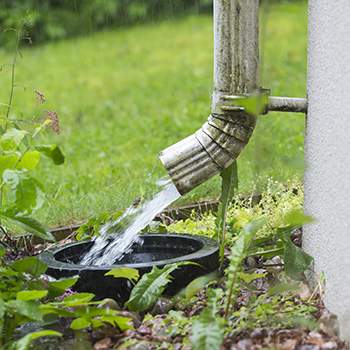
To collect large amounts of rainwater in the state of Oregon, you will need a permit. However, the state’s regulations also allow the collection of rainwater from parking lots and rooftops.
Rhode Island
Rhode Island residents are encouraged to harvest rainwater by offering them a 10% tax credit on their rainwater collection systems. When homeowners install a cistern onto their property or replace an old one with a larger one, they are rewarded with a credit of up to $1,000.
South Carolina
Rainwater collection is encouraged in the state of South Carolina, though regulations are in place to ensure water quality.
South Dakota
There are no significant restrictions on rainwater collection in South Dakota, and it is permitted for both personal and agricultural use.
Texas
Rainwater harvesting is encouraged for Texas residents. The only regulations are for rainwater harvesting safety standards.
Utah
There are several regulations for rainwater collection in Utah. Namely, you can not store more than 2,500 gallons, and you can only use it on the land where it was collected. Additionally, your system must be registered if you are planning on harvesting more than 100 gallons of rainwater for personal use.
Virginia
Rainwater harvesting is encouraged in the state of Virginia. However, there are regulations concerning its safety.
Washington
There is limited regulation for rainwater collection in Washington. Nevertheless, residents are not prohibited from collecting rainwater for personal use.
The regulations surrounding rainwater harvesting are constantly changing; therefore, it’s important that you do your own research to determine where it is legal to harvest rainwater before installing a rainwater collection system, because many people have been arrested or fined for violations.
You may also like:
What We Learned Living on Our Food Storage for a Month
Do You Know Why You Should Never Put A Tall Fence Around Your House? (Video)
How To Make A Pressure Sensor Pad To Know When You Have An Intruder On Your Property
Best Dog Breeds For Homesteaders
DIY Raised Beds For Your Backyard
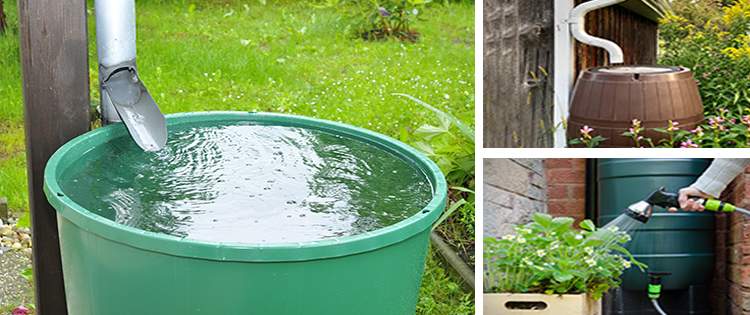








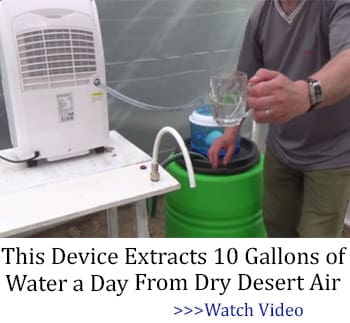



I’m not sure that’s accurate about California
What about New Mexico?
You are correct. https://www.gutterfix.com/rainwater-harvesting-laws-california/
“However, with the Rainwater Capture Act through Assembly Bill 1750 (2012), rainwater harvesting has been legalized in the State. Californians are now relieved from the requirement of getting a permit before collecting rainwater.”
It isn’t. California now allows the collection of rooftop rain water. See at State Water
Resources Board.
Good job covering Idaho……. NOT
better if yiu had a link for ALL states, lke NY for example